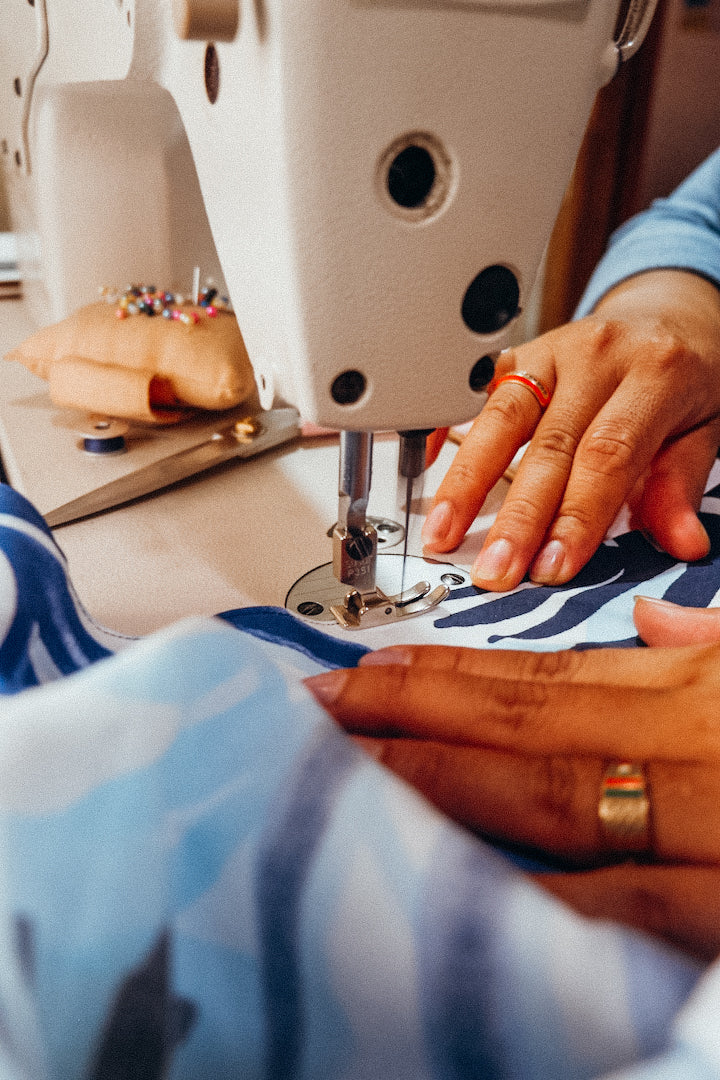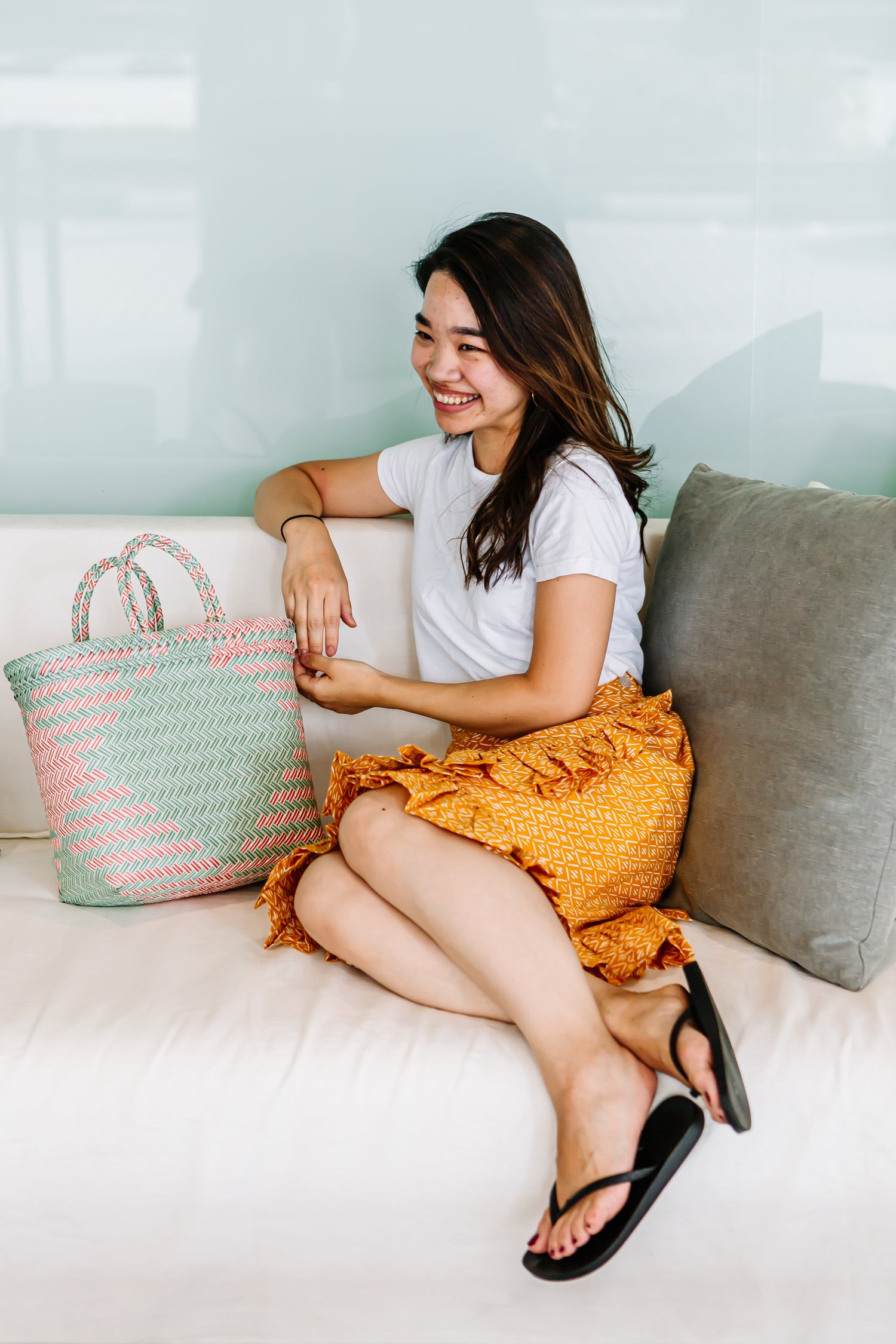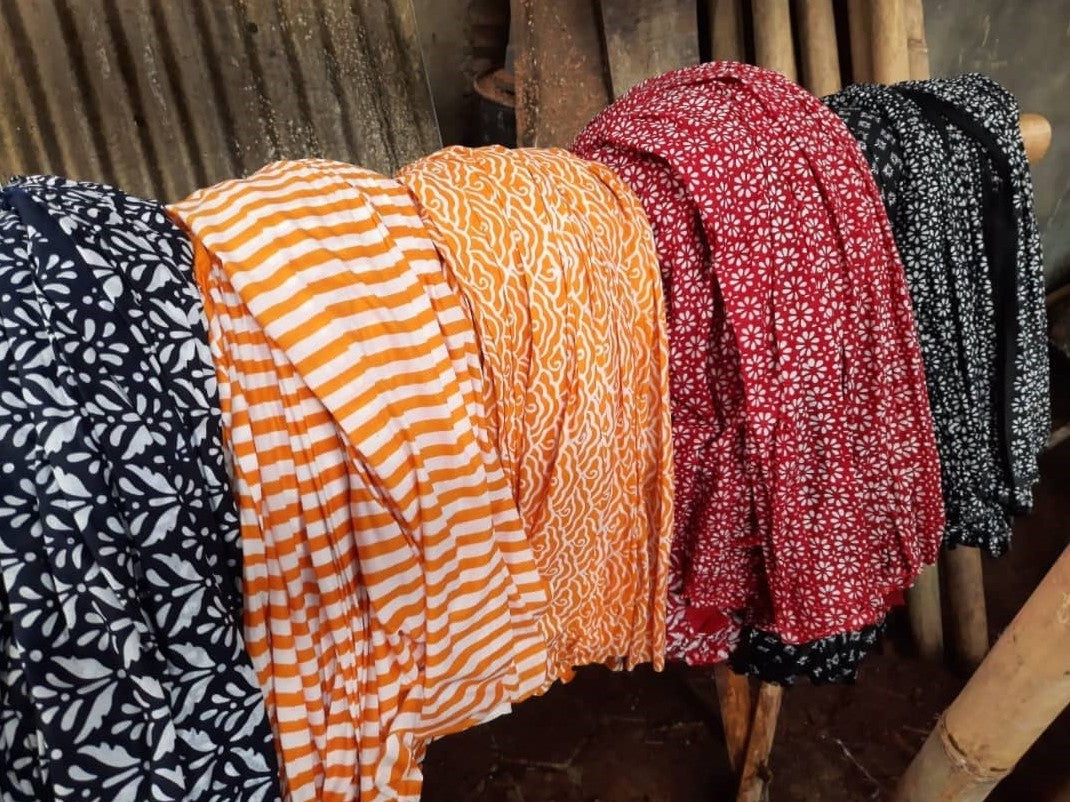What is Batik?
Deeply woven into the beautiful culture of Indonesia, Batik is a ancient tradition that has been passed on for generations.
At Alika Day, we use the 'batik cap' or 'handstamped batik' technique which honours the craft while keeping prices affordable for consumers.In 'batik cap', batik motifs are created using copper stamps. In this process, motifs are carved onto square copper plates, which are then dipped into hot wax before being stamped to create motif imprints on the fabrics. This technique was inspired by an Indian wood-stamping technique that became popular through trade routes to Sumatra before gaining in popularity on Java Island. Often, this process may be repeated to achieve layers of color and complexity, creating the enchanting and vibrant art of batik.
Finally, the fabric is then boiled in a basin which will melt the wax so that it floats on top of the water. This wax can be collected and reused, while the resulting fabric shows the intricate layers of batik motifs in their stamped colours.Each piece of fabric showcases the creativity, skill and care of its artisans, making it a cherished artform.
Caring for your pieces
It's not hard to take care of your Alika Day apparel! Here are a few simple steps to keep your pieces fresh as sustainable pieces in your wardrobe:
- Wash separately on the first wash in case of colour run.
- Another way is to soak your fabric in lukewarm soapy water.
- Soap nut is another traditional way of washing batiks.
- Dry away from direct sunlight.
Enjoy the handiwork of these master makers and feel beautiful every time you wear your Alika Day pieces!

MADE WITH LOVE
Consciously Crafted
We don't follow seasonal trends, we release collections based on inspiration, our makers' capacity and the availability of materials. This ensures that each piece is made sustainably, and with love!

OUR STOCKISTS
Ethical Partnerships
As each piece is entirely made by hand, our collections are small and considered. We are selective with our stockists to ensure all products are cared for and nothing goes to waste. You could say our pieces find their owners.

